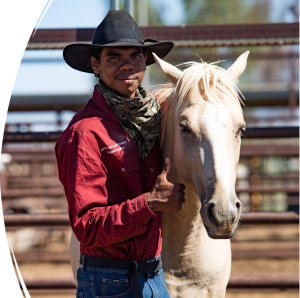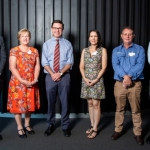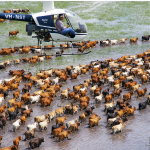The Northern Western Australia and Northern Territory Drought Resilience Adoption and Innovation Hub (NWANT Drought Hub) is starting to build momentum and it is now time to provide an update on how the hub is progressing.
We recently made the new NWANT Drought Hub Website live and the core members of the hub have been meeting regularly to set the Hub up. Key business has been the establishment of a formal contractual agreement between the core group which is in the final processes of being signed. The group will form an Unincorporated Joint Venture as an interim Governance Structure, with a view of determining a long-term Governance Structure over the next three months.
On 16/6/21 CDU signed the Commonwealth agreement, and as you would be aware we began to seek conformation from all members and stakeholders of their co-contributions now that the Hub was officially funded.
I (Jed Matz) have continued to support the hub on a contractual basis to act as Interim Hub Director and provide some capacity in the Knowledge Broker network as well. Both roles have been advertised and the selection processes are in various stages, but both should be complete by November. The selection process for an independent chair has also begun.
The hub participated in the Commonwealth’s Science to Practice Forum in a virtual capacity due to Darwin being in COVID-19 lockdown during the event.
In the next Month the Hub will be approach you as members and stakeholders of the hub to have direct input into the design of the research projects we will be undertaking. As part of our agreement with the Commonwealth for funding the hub, we must develop and implementation of an RDEA&C strategy (Operational Plan), building on the draft RDEA&C Plan for the Hub in the original Program application.
The operational plan must incorporate the Hub’s conduct and planning of co-designed, collaborative and demand-driven RDEA&C activities based on pre-existing research that effects transformational change in the Hub Region and achieves user-centred innovation, research and adoption outcomes that are relevant, useful and used.
So far, our co-design plan is as follows:
Stage 1 – core-member workshop (complete)
Core members of the Hub met (27/7/21) to review the current planned activities, discuss further activities, and plan the co-design process. It was agreed to engage an expert in co-design to assist the hub director to deliver this process (CDU approached).
Stage 2 – Communications
The hub will undertake communications to member, supporting organisations and research end users explaining the role of the hub and outlining the upcoming co-design process. The intent of this communication is to ensure all stakeholders are aware of the hub, its role and how they can be involved in building the research programs.
Stage 3 – Engagement
NWANT Drought Hub decided a process predicated on several workshops may not work given the changing COVID-19 environment and the significant geographical challenges for our hub’s region. It was agreed that a multi-forum approach be undertaken including:
- Utilisation of an online Community Engagement resource to conduct forums, consultation, and engagement over the entire co-design process enabling all stakeholders to have their say.
- Targeted engagement with identified key people via online and face-to-face interviews – we will ask you to nominate your key people for this process.
- Engagement with key people within DPIRD and NTDITT be conducted.
- Workshops with key committees and boards of core-members and supporting members.
- Leveraging existing events and gatherings to communicate and engage with groups when/if possible.
- If time and COVID-19 permit some workshops may be undertaken.
Data will be captured from each of these engagement methods.
Stage 4 – Collation and Presentation of Data Final Session with Core Partners
Core members of the Hub will again come together to review the data from the engagement process and consider reconditions that have come from the process. This may cause changes to current planned activities, identify new activities. At the end of this process the final plan will be developed and submitted the Commonwealth.



